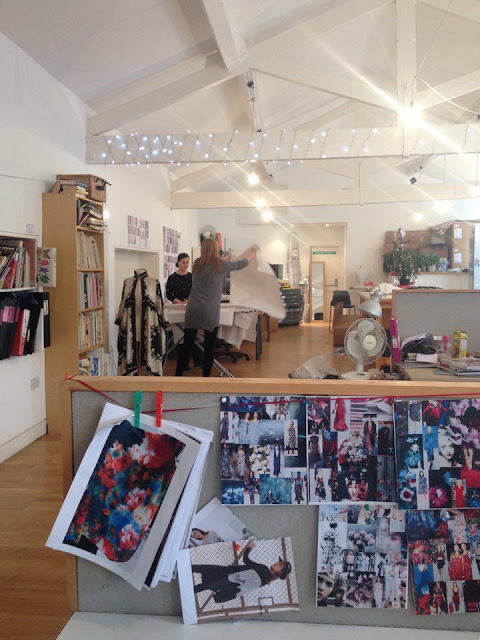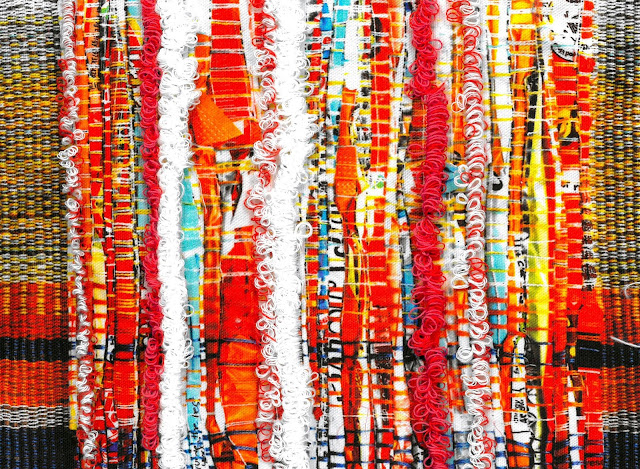London: Owens and Kim Studio Visit
A couple of weeks ago, I was lucky enough to visit the London studios of the prestigious Textile designers 'Owens and Kim' (Helen Owens and Kim Stockton). They specialise in digital printing on Silks, and have recognised customers from all around the world.
Most of the prints I was shown concentrate on floral imagery, creating botanical and tropical outcomes to suit clientele from regions such as Japan, China and America. Companies such as Zara, Topshop, Valentino, Anthropology and ASOS were described as consistent buyers which I thought was particularly intriguing due to how the pricing varies in the designer and highstreet companies.
I learnt how once the prints are 'sold' to a company, they are able to adapt the colour and size of the design in order to fit it into their collection. It was also interesting to find out that Owens and Kim don't actually repeat the pattern when pitching them to buyers, the companies who buy the prints do it themselves.
By getting a first hand experience of the studios in working progress, I was able to realise how important drawing is to each and every designer. Every desk was covered in drawing and painting mediums, and piles and piles of floral and plant-based motifs were being constantly and speedily produced. The designers explained how quickly the turnover of designs are in order to keep up with the demand of 'Fast Fashion' , and how it is so important to continuously record inspiration through traditional hand-methods.
Owens described how each designer had their own 'hand' when drawing/producing work which shows their identity, therefore they become recognisable within the brand, and also means that the prints they produce are all slightly varying depending on the designer who produced the piece.
It was clear that the main inspiration that the designers use is from the extensive archive of collectable and limited edition books. Owen's described that some of the books have the value of up to £1,000, and therefore it became clear that traditional means are crucial to this companies foundation.
 |
| Owens and Kim book archive |
It was clear that the main inspiration that the designers use is from the extensive archive of collectable and limited edition books. Owen's described that some of the books have the value of up to £1,000, and therefore it became clear that traditional means are crucial to this companies foundation.



Comments
Post a Comment